2026 General State Budget Approved in General Terms by the National Parliament
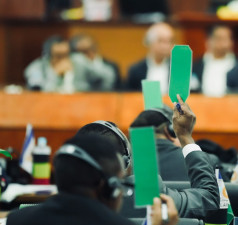
The Draft Law Proposal on the 2026 General State Budget (GSB) was approved in general terms by the National Parliament during its plenary session on November 7th, 2025, with 42 votes in favour, zero against, and 23 abstentions.
Under the slogan “Investing in National Transformation, Regional Integration and Inclusive Development”, the 2026 GSB sets a total consolidated budget of US$2.291 billion. The budget proposal allocates US$2.215 billion to the Central Administration, US$170.4 million to Social Security, and US$60 million to the Oe-Cússe Ambeno Special Administrative Region (RAEOA). 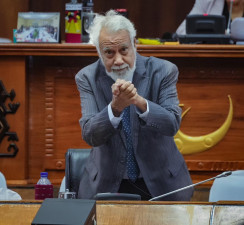
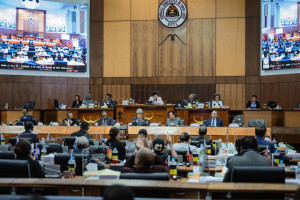
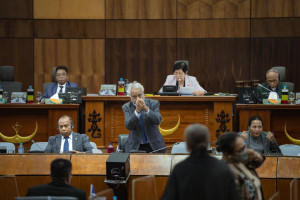
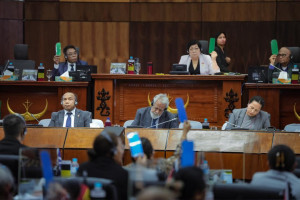
The document reflects the budgetary strategy of the 9th Constitutional Government to enhance social capital, invest in structural infrastructure, diversify the economy, and strengthen good governance, consistent with the 2011–2030 Strategic Development Plan and the Government Programme.
Prime Minister Kay Rala Xanana Gusmão emphasised in his speech at the opening of the debate that this budget "is more than a financial plan; it is our pact with the Timorese people and our commitment to the region we are joining, as equals”, highlighting that 2026 will be “the year of transforming the economy, boosting employment, productive investment and social inclusion”.
According to macroeconomic projections presented by the Government, non-oil Gross Domestic Product (GDP) is expected to increase by 4.5% in 2025 and 2026, driven by household spending, increased public expenditure, and higher activity in the private sector.
The Government's budgetary strategy focuses on implementing structural reforms that enhance public financial management and support sustainable economic growth. These include reforms in contract management and public investment, aimed at improving the delivery of complex and multi-purpose projects, as well as increasing access to concessional loans for capital investments, thereby reducing reliance on the Petroleum Fund.
Civil service reforms, including the implementation of mandatory retirement at age 65, aim to introduce greater discipline to the public sector wage bill. Simultaneously, institutional and investment reforms are in progress that will improve the efficiency and transparency of public administration.
The creation of the National Development Bank of Timor-Leste (BDNTL) plays a catalytic role in mobilisation of financing for private sector growth and infrastructure projects. Simultaneously, the Government is prioritising strategic investments along the southern coast, particularly in the oil and mineral resources sectors, with a view to expanding industrial capacity and diversifying sources of economic growth.
Digital governance initiatives are also being promoted, which will enable greater accuracy in verifying beneficiaries, ensure strict control of payroll, and reduce leakage in money transfers through modern information systems between banks and mobile money operators. This digital transformation will further enhance data interoperability among tax, customs, pension, and civil registry systems, strengthening compliance and expanding the State's revenue base.
Timor-Leste's accession to ASEAN marks a significant milestone for the country, enabling it to expand access to the regional market, boost investor confidence, and integrate into the region's trade and regulatory frameworks. The 2026 GSB reflects these opportunities, emphasising reforms in land titling, financial inclusion, solvency, and accounting standards, as well as investments in digital connectivity and airport infrastructure upgrades. These measures collectively aim to make Timor-Leste a more attractive investment destination, fostering inclusive and sustainable development.
The 2026 General State Budget thus consolidates the foundations for sustained and inclusive economic growth, promoting employment, productive investment, and regional integration, preparing the country for the challenges of the coming decade.
The proposal will now be discussed in detail, with discussions scheduled to begin on November 13th, and should culminate in a final overall vote by November 26th, 2025.
Legal Disclaimer:
EIN Presswire provides this news content "as is" without warranty of any kind. We do not accept any responsibility or liability for the accuracy, content, images, videos, licenses, completeness, legality, or reliability of the information contained in this article. If you have any complaints or copyright issues related to this article, kindly contact the author above.
